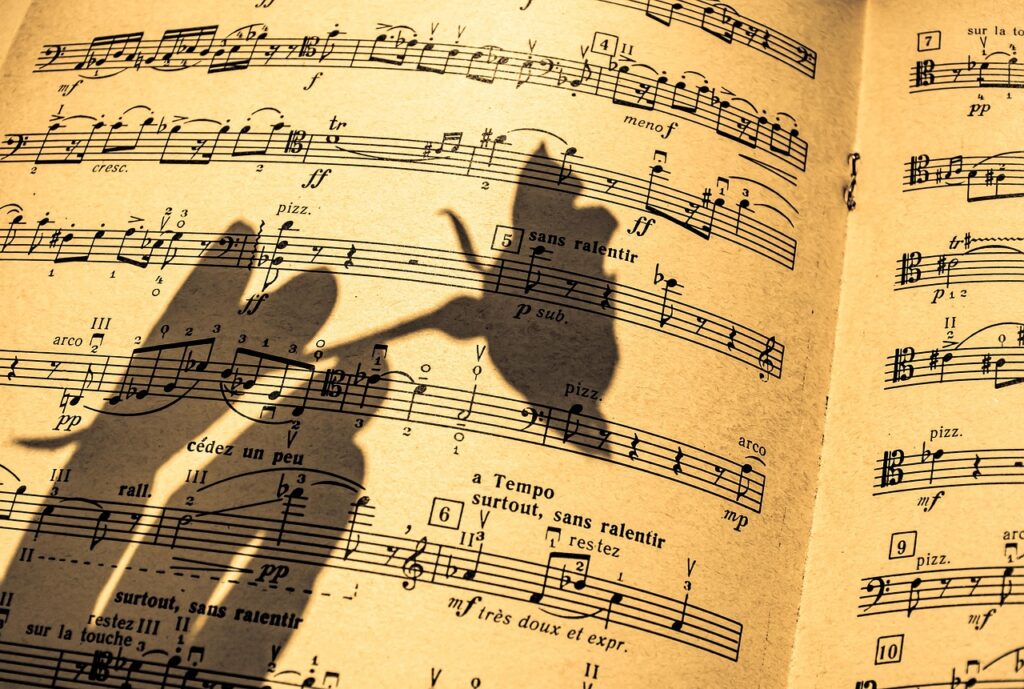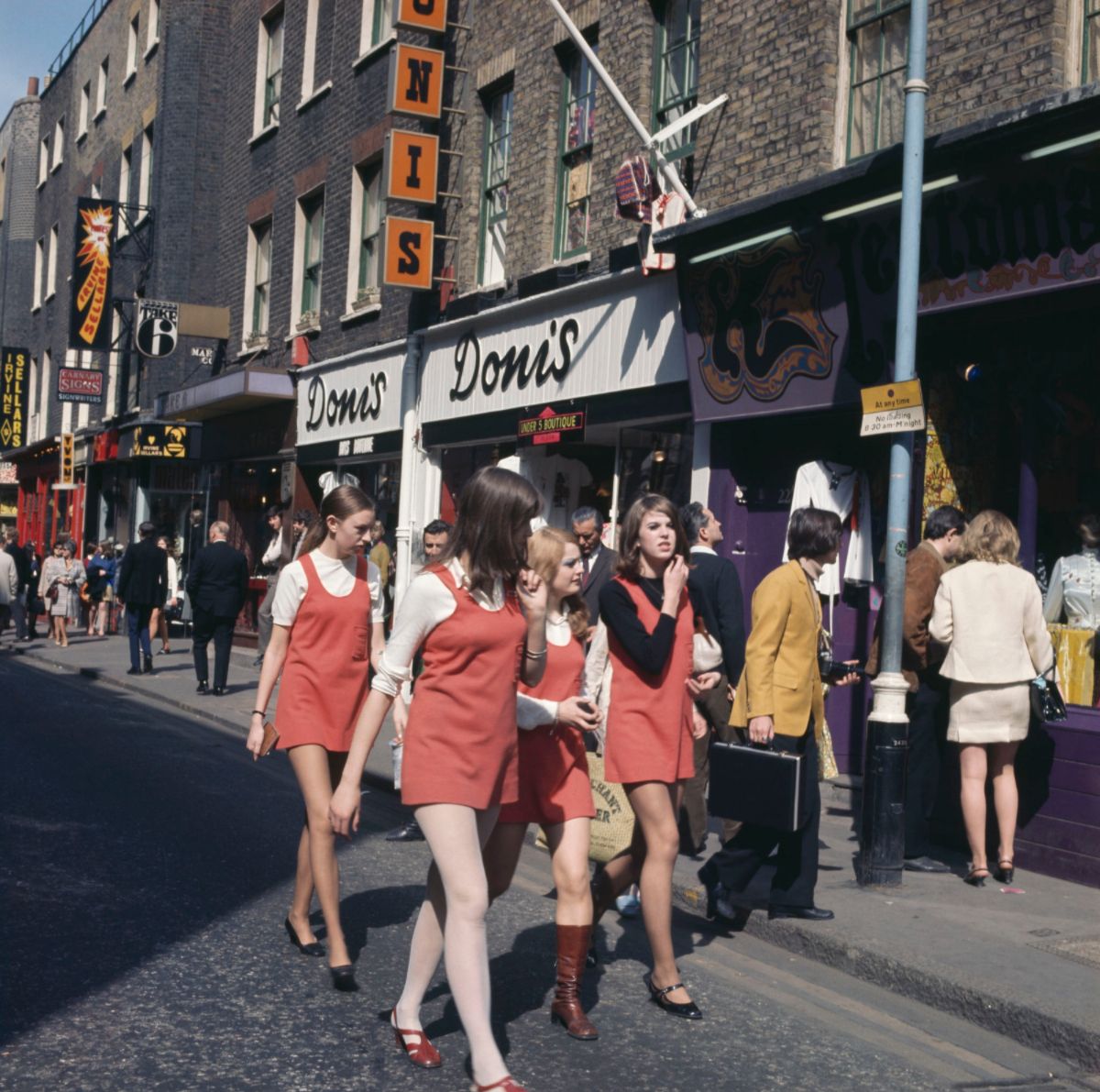
It is with profound sadness that the music world acknowledges the passing of John Lodge, the esteemed bassist and vocalist who profoundly influenced the U.K. band Moody Blues for over five decades. At 82 years old, Lodge died on October 10, a loss that has resonated deeply across the industry and among his devoted fanbase. His family announced his death through a statement, which confirmed that he was “suddenly and unexpectedly taken from us,” leaving behind a legacy marked by an unwavering passion for music, deep faith, and an enduring love for his family.
The statement, sent to USA TODAY by the musician’s representative Sharon Chevin, underscored the immense impact Lodge had on those around him. “As anyone who knew this massive hearted man knows, it was his enduring love of his wife, Kirsten, and his family, that was the most important thing to him, followed by his passion for music, and his faith,” the family shared. This sentiment provides a poignant insight into the values that guided Lodge’s life, both on and off the stage, shaping his artistic endeavors and personal journey.
John Lodge’s journey in music was a testament to his dedication and talent, contributing to some of rock and roll’s most iconic soundscapes. From his early days in Birmingham, England, to his pivotal role in The Moody Blues, and his later solo work, Lodge consistently left an indelible mark. This article aims to provide an in-depth look at his remarkable career, celebrating his achievements, his contributions to music, and the personal convictions that defined this extraordinary artist.

1. **The Sudden Passing of a Prog-Rock Icon**The news of John Lodge’s death at 82 on October 10 was met with deep sorrow by his family, colleagues, and fans worldwide. His family’s statement, posted on his official Facebook page, conveyed the unexpected nature of his passing, stating he was “suddenly and unexpectedly taken from us.” This announcement highlighted not only the loss of a musical legend but also a cherished husband, father, grandfather, father-in-law, and brother.
His loved ones confirmed that John “peacefully slipped away surrounded by his loved-ones and the sounds of The Everly Brothers and Buddy Holly.” This detail offers a tender glimpse into his final moments, emphasizing the comfort he found in his family and the music that had been a lifelong companion. The family also conveyed their profound grief, stating, “We will forever miss his love, smile, kindness, and his absolute and never-ending support.”
The family’s statement further articulated their path forward, acknowledging their heartbreak while embracing the peace found in the love he shared. “We are heartbroken, but will walk forwards into peace surrounded by the love he had for each of us,” they wrote. They also referenced his signature closing remark at shows, “As John would always say at the end of the show, thank you for keeping the faith,” a phrase that resonated deeply with his loyal fanbase.
In a gesture of remembrance and to honor his memory, the family requested privacy and suggested that fans listen to Lodge’s song “Whispering Angels.” This song, they noted, serves as the “proper soundtrack to remembering him, as an ‘incredible man who touched so many lives’.” The family chose not to make any further comments, allowing the music itself to speak to his enduring spirit and impact.
Read more about: Robert Redford: An American Icon’s Enduring Legacy as Screen Idol, Visionary Director, and Tireless Activist

2. **Early Life and Musical Roots in Birmingham**John Lodge was born in the suburbs of Birmingham, England, in 1943. His upbringing in this vibrant city, known for its rich musical heritage, laid the groundwork for his future career. From an early age, Lodge developed a deep affection for rock and roll, which would profoundly influence his musical direction and career path. This early passion for the genre would see him pick up the bass guitar and immerse himself in the burgeoning music scene of the early 1960s.
His journey into music began in earnest in the early 1960s, as he started playing in local Birmingham bands. It was during this formative period that he crossed paths with Ray Thomas, a musician who would later become a founding member of The Moody Blues. This connection would prove to be instrumental in shaping Lodge’s destiny, leading him to the band that would define his professional life.
Lodge received his first Fender bass guitar at the age of 16, a moment that marked a significant turning point in his musical development. This instrument became an extension of his artistic voice, allowing him to contribute his distinctive sturdy bass lines and melodic sensibilities to the bands he joined. His commitment to mastering his craft was evident from these early days, setting the stage for his future success.
While still in high school, Lodge, alongside his friend Ray Thomas, formed a band called El Riot & the Rebels. This early experience in performing and collaborating honed his skills and cemented his passion for live music. These foundational years in Birmingham were crucial in cultivating the talent and dedication that would later see him rise to international stardom with The Moody Blues.
Read more about: Beyond the Podium: Carl Lewis’s Enduring Impact as a University of Houston Head Coach

3. **Joining The Moody Blues: A Pivotal Moment**The year 1966 marked a pivotal turning point in John Lodge’s career when he received an invitation from Ray Thomas to join The Moody Blues as their bass guitarist. This opportunity arose after the band’s original bassist, Clint Warwick, decided to depart from the group. Lodge stepped into this role, bringing with him a fresh perspective and a solid musical foundation.
His arrival coincided with another significant addition to the band: new guitarist and singer Justin Hayward. Together, Lodge and Hayward completed what would become the classic lineup of The Moody Blues, joining drummer Graeme Edge, keyboardist Mike Pinder, and multi-instrumentalist Ray Thomas. This configuration of talent was instrumental in steering the band towards its most celebrated and influential period.
At the time Lodge joined, The Moody Blues had already scored a notable chart hit with a blue-eyed soul cover of Bessie Banks’ “Go Now!” This single had peaked at No. 10 on the Billboard Hot 100 in April 1965, showcasing the band’s early potential. However, following this initial success, the group struggled to replicate its chart performance, leading to the lineup changes that brought Lodge and Hayward into the fold.
The integration of Lodge and Hayward breathed new life into the band, setting the stage for a dramatic shift in their musical direction. Their collective talents and artistic vision would soon transform The Moody Blues from a rhythm and blues outfit into pioneers of symphonic and progressive rock, a transition that would redefine their sound and legacy.
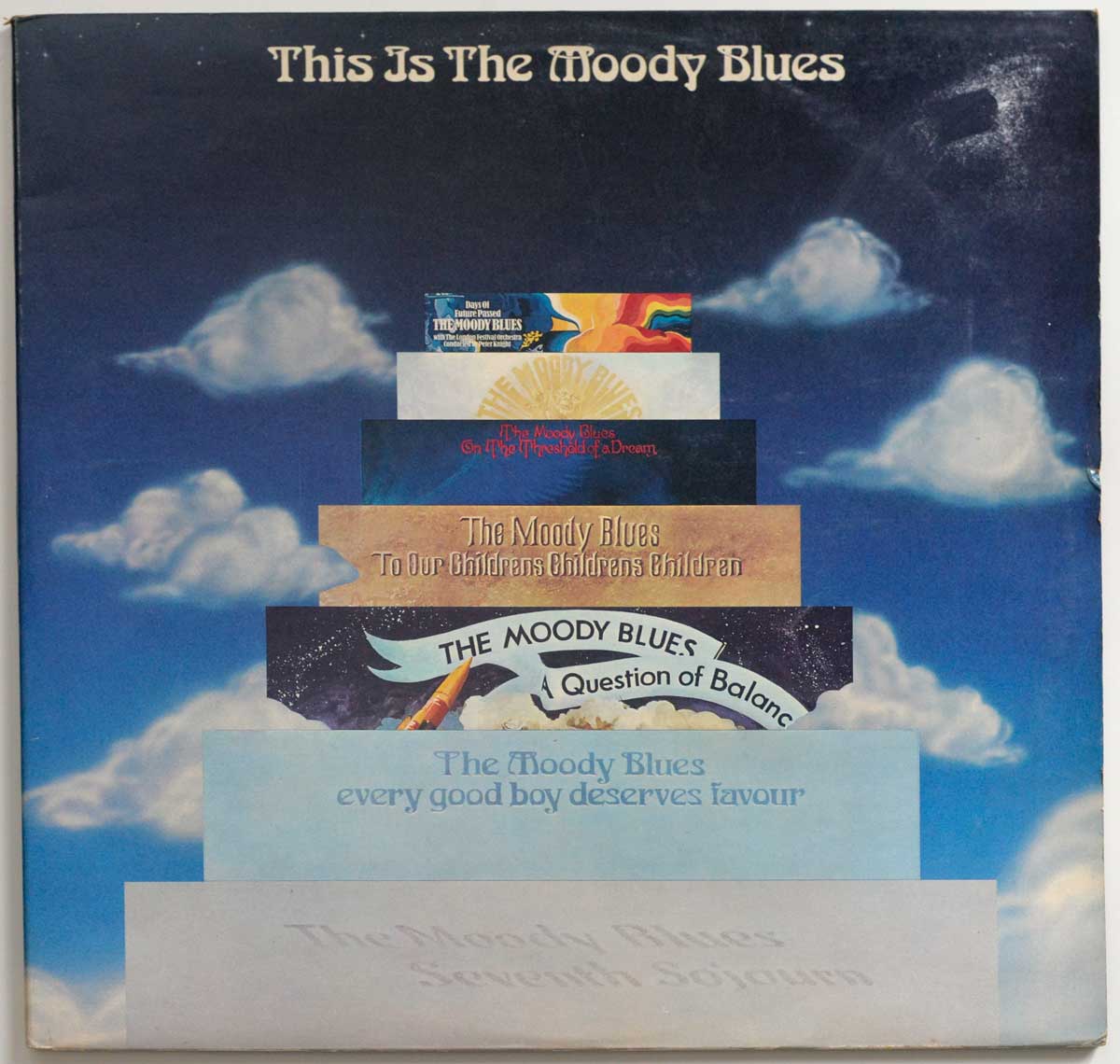
4. **The Dawn of Progressive Rock: ‘Days of Future Passed’**Following the crucial lineup changes that brought John Lodge and Justin Hayward into The Moody Blues, the band embarked on a transformative musical journey. This new configuration, working alongside producer Tony Clarke, took a bold turn towards a more symphonic, progressive, and psychedelic rock sound. This marked a significant departure from their earlier rhythm and blues style.
Their first album with this new artistic direction was 1967’s ambitious ‘Days of Future Passed’. This pioneering work is often celebrated as one of the earliest examples of progressive rock, blending classical orchestration with rock instrumentation and thematic lyrical content. It was an album that, at first, was not a massive chart hit, but its innovative approach began to captivate a devoted fanbase.
‘Days of Future Passed’ eventually spawned a Hot 100 hit with the No. 22-peaking single “Tuesday Afternoon.” This track, along with the album’s lush arrangements and panoramic performance and presentation, showcased the band’s burgeoning creativity and their willingness to push musical boundaries. The album’s conceptual nature, exploring a day in the life, resonated with listeners seeking more depth in popular music.
John Lodge’s sturdy bass lines were an integral part of anchoring these majestic arrangements, preventing them from drifting into pomposity. His playing provided a vital foundation for the orchestral elements and the expansive soundscapes that defined the album. This collaboration laid the groundwork for the band’s future successes and their enduring impact on the progressive rock genre, changing their lives forever as Lodge himself noted in his Hall of Fame induction speech.
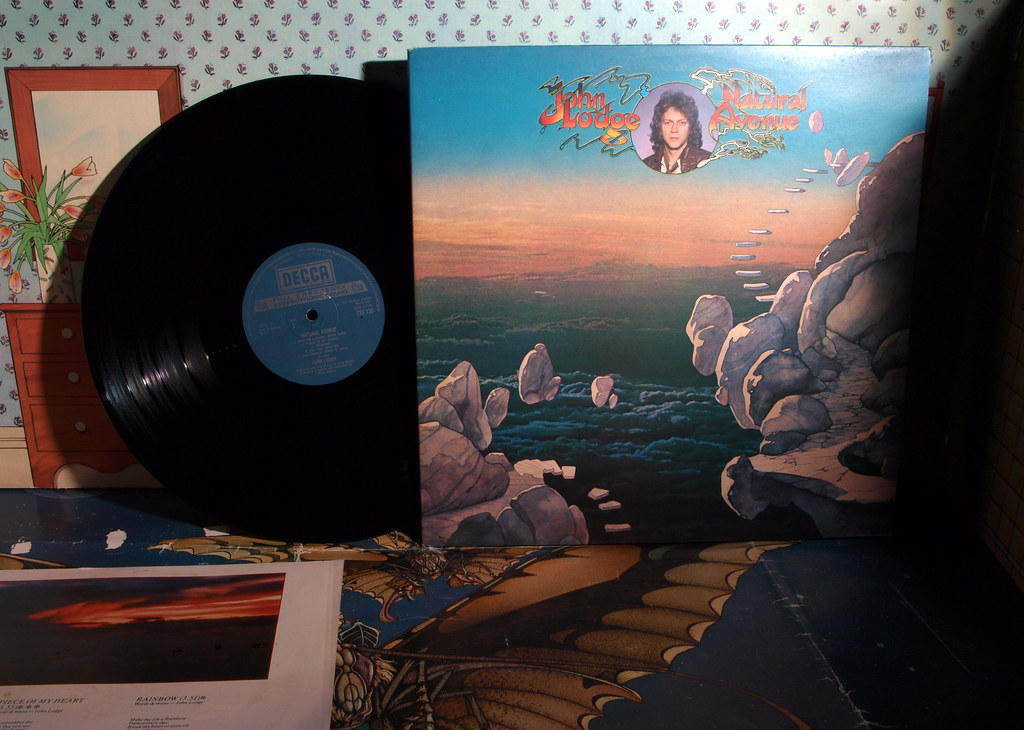
5. **Soaring Success in the Late 60s and Early 70s**Following the groundbreaking release of ‘Days of Future Passed’, The Moody Blues, with John Lodge as a core member, continued to build on their innovative sound and garnered increasing commercial success through the late 1960s and early 1970s. This period saw the band release a string of highly regarded albums that solidified their position as symphonic prog-rock greats.
The band achieved significant chart success on the Billboard 200, with several albums hitting the top five. These included 1970’s ‘A Question of Balance’, 1971’s ‘Every Good Boy Deserves Favour’, and 1972’s ‘Seventh Sojourn’. The latter marked a particular triumph, becoming the band’s first No. 1 on the Billboard 200, a testament to their growing popularity and artistic maturity.
During this prolific era, The Moody Blues also spun off several Hot 100 hit singles. “Question” reached No. 21 in 1970, and “The Story in Your Eyes” peaked at No. 23 in 1971. These tracks, alongside their critically acclaimed albums, showcased the band’s ability to combine complex musicality with accessible melodic hooks, appealing to a broad audience.
Their commercial peak in 1972 with ‘Seventh Sojourn’ was augmented by the revived popularity of “Nights in White Satin,” an epic track from ‘Days of Future Passed’. Five years after its initial release, this song reached No. 2 in late 1972, becoming one of their biggest hits. This period of sustained success cemented The Moody Blues’ status as one of the most influential and commercially viable English bands, particularly in America, where their music struck a chord with millions.
Read more about: Beyond the Spotlight: Unveiling the Enduring Realities of Country Music’s Iconic Married Duos
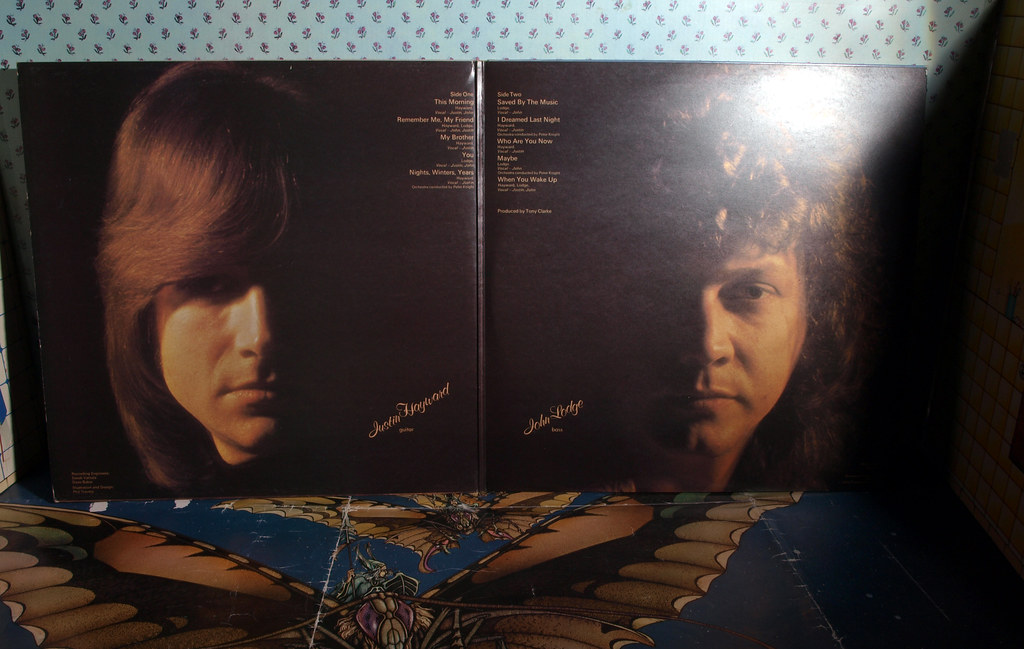
6. **The Enduring Power of “Nights in White Satin” and “I’m Just a Singer”**While many of The Moody Blues’ albums and singles achieved significant chart success, certain songs attained an iconic status that transcended their initial release. “Nights in White Satin,” a climactic epic from their 1967 album ‘Days of Future Passed’, stands out as the band’s biggest hit, reaching No. 2 in late 1972, five years after its initial debut. Its enduring appeal lies in its lush arrangements, evocative lyrics, and timeless melody, resonating with generations of listeners.
John Lodge’s robust bass lines were fundamental in anchoring such majestic compositions as “Nights in White Satin,” providing a steady rhythmic and harmonic foundation that allowed the song’s complex orchestral and vocal elements to soar without becoming overly ornate. His playing was a crucial component in maintaining the balance between grandeur and grounded musicality, a hallmark of the band’s sound.
Another track where Lodge’s contribution was prominently felt was the 1973 No. 12 hit “I’m Just a Singer (In a Rock and Roll Band).” Lodge not only sang on this rollicking track but also wrote it, demonstrating his versatile talents as a songwriter and vocalist. The song’s signature bass riff, a catchy and memorable hook, is a testament to his musical craftsmanship and intrinsic understanding of the band’s dynamic.
“I’m Just a Singer (In a Rock and Roll Band)” also encapsulated a certain humility and self-awareness, allowing Lodge to express his identity within the context of the band’s broader artistic endeavors. Both “Nights in White Satin” and “I’m Just a Singer (In a Rock and Roll Band)” exemplify Lodge’s profound impact on The Moody Blues’ sound and legacy, showcasing his talents as a bassist, singer, and songwriter that contributed significantly to the band’s most memorable works.

7. **Further Songwriting Contributions and Lyrical Depth**Beyond his powerful bass lines, John Lodge significantly shaped The Moody Blues’ sound through his songwriting. His contributions extended to several key tracks, showcasing his ability to craft both melodic and lyrically resonant pieces that became staples of the band’s repertoire. These songs often offered a glimpse into his perspective, blending introspection with rock anthems.
One notable composition from Lodge was the 1972 hit “Isn’t Life Strange,” which climbed to No. 29 on the charts. This track, a testament to his evolving lyrical prowess, demonstrated his capacity to contribute to the band’s continued success while exploring profound themes within their symphonic rock framework. His songwriting provided a crucial balance to the collective output of the group, ensuring a diverse range of artistic expression.
Lodge’s collaborative spirit also shone through in his work with Justin Hayward. The duo co-wrote and shared lead vocals on the 1981 No. 12 hit “Gemini Dream,” a track that exemplified the band’s ability to adapt its sound for a new decade. This partnership was instrumental in creating some of The Moody Blues’ most memorable and commercially successful post-hiatus material, further solidifying Lodge’s multifaceted role.
His songwriting extended to other significant tracks such as “Ride My See-Saw,” which became another recognizable song from their extensive discography. Additionally, Lodge penned “Emily’s Song,” a deeply personal composition dedicated to his daughter, highlighting the influence of his family life on his artistic output and demonstrating the breadth of his thematic concerns.
Read more about: Beyond the Spotlight: Unveiling the Enduring Realities of Country Music’s Iconic Married Duos
8. **Solo Ventures and The Blue Jays Collaboration**Following a period of intense creativity and commercial success, The Moody Blues embarked on a hiatus in the mid-1970s. During this time, John Lodge pursued individual projects, exploring musical avenues outside the band’s collective dynamic. This period allowed him to delve into personal expressions and collaborations, showcasing his versatility as a musician and songwriter.
A significant outcome of this hiatus was the 1975 album ‘Blue Jays,’ a collaborative effort between Lodge and fellow Moody Blues member Justin Hayward. The album achieved considerable success, reaching the top 20 on the Billboard 200 chart. It also spawned two minor Hot 100 hit singles, “I Dreamed Last Night” (No. 47) and “Blue Guitar” (No. 94), which notably represent the only chart hits Lodge ever achieved under his own name.
The ‘Blue Jays’ project underscored Lodge’s capacity to co-lead a successful musical endeavor, demonstrating his songwriting and vocal talents alongside Hayward’s. This collaboration was well-received by fans, offering a continuation of the melodic sensibilities associated with The Moody Blues while providing a distinct, more intimate sound. It served as an important chapter in both musicians’ careers.
Subsequently, Lodge released his debut solo album, ‘Natural Avenue,’ in 1977. Although this album saw limited commercial success compared to his work with The Moody Blues or ‘Blue Jays,’ it further cemented his commitment to individual artistic exploration. It showcased his independent creative vision and readiness to experiment beyond the established group framework, laying the groundwork for future solo endeavors.
Read more about: Unlocking the ‘Garage’ of Genius: Exploring the Rare Classics and Unique Talents of Icons Named Jay
9. **The Moody Blues’ Resurgence and MTV Era**The late 1970s marked a new phase for The Moody Blues as the band reconvened, subsequently enjoying a significant resurgence in popularity through the 1980s. This period saw a distinct evolution in their sound, characterized by a shift towards a poppier, more synth-driven aesthetic, moving away from the orchestral arrangements that defined their earlier progressive rock output. This adaptation allowed them to connect with a new generation of listeners.
Their 1981 album, ‘Long Distance Voyager,’ proved to be a critical component of this comeback, topping the U.S. charts. The album featured hit singles such as “The Voice” and “Gemini Dream,” the latter co-written by Lodge, signaling a successful transition into the contemporary soundscape. This commercial triumph reaffirmed the band’s enduring appeal and their ability to remain relevant in a rapidly changing music industry.
The advent of music television, particularly MTV, provided a powerful new platform for The Moody Blues to reach a wider audience. Their 1986 single “Your Wildest Dreams” became a No. 9 hit on the Hot 100, significantly boosted by a plot-driven music video directed by Brian Grant. This visual component played a crucial role in the song’s widespread success, introducing the band to a demographic less familiar with their progressive rock origins.
Despite a gradual decline in commercial chart success in the 1990s, The Moody Blues maintained a robust touring schedule well into the 21st century. John Lodge remained an integral core member, contributing to their live performances and preserving the band’s legacy on stage. His consistent presence underscored his dedication to the group and its music, ensuring fans could experience their timeless sound for decades.
10. **A Prolific Later Solo Career and Esteemed Recognition**Even after The Moody Blues ceased recording new studio albums and transitioned away from regular touring, John Lodge continued to maintain a prolific solo career. This dedication to his craft allowed him to further explore his musical ideas and connect with fans through new material and live performances, reinforcing his status as an enduring figure in progressive rock. His later solo work was marked by both original compositions and a revisiting of his classic contributions.
In 2015, Lodge released his second solo album, ‘10,000 Light Years Ago,’ which was met with critical appreciation. This album demonstrated his continued artistic vitality and his commitment to producing fresh music. Following its release, he embarked on solo tours, including a notable stint in 2019 where he supported fellow progressive rock titans Yes, showcasing his continued presence on the international stage.
His significant contributions to the genre were formally acknowledged in 2019 when he was honored with the Lifetime Achievement Award from the Prog Awards in London. This prestigious recognition celebrated his half-century of excellence within progressive rock, acknowledging his profound impact as a bassist, vocalist, and songwriter. It underscored his enduring influence on a genre he helped to define.
Most recently, Lodge continued to release new music, demonstrating an unwavering passion for his art. His 2023 solo LP, ‘Days of Future Passed: My Sojourn,’ offered a reimagining of The Moody Blues’ seminal 1967 album, providing a fresh perspective on a classic. This was followed by his final solo release, the EP ‘Love Conquers All,’ which was made available in February, shortly before his passing, leaving a poignant final testament to his musical spirit. He also released the live album ‘The Royal Affair And After’ in 2021, showcasing his continued live performance prowess.
Read more about: Kris Kristofferson, the Country Music Renegade and Rhodes Scholar Who Redefined American Artistry, Dies at 88
11. **The Cornerstone of Family and Enduring Faith**Central to John Lodge’s life, beyond his celebrated musical career, was his profound dedication to his family and his unwavering faith. This deeply personal aspect was consistently highlighted by his loved ones, who described his “enduring love of his wife, Kirsten, and his family, that was the most important thing to him, followed by his passion for music, and his faith.” This sentiment painted a picture of a man grounded in personal values.
Lodge’s marriage to Kirsten in 1968 was a lasting partnership, enduring until his death. Together, they raised two children, Emily and Kristian, whose lives significantly influenced his creative output, as evidenced by “Emily’s Song.” The family also shared his joy in engaging with his children’s careers and spending time with his grandson, John-Henry, fostering dreams of him playing football for Birmingham City.
His Christian faith, specifically described as evangelical Christian beliefs in some accounts, played a crucial role in shaping his life. Lodge himself credited his faith with providing guidance and helping him navigate the often-turbulent world of rock and roll, allowing him to avoid what he referred to as “the excesses” of the lifestyle. This spiritual anchor provided stability throughout his long and successful career.
In their statement, his family offered a tender glimpse into his final moments, noting that he “peacefully slipped away surrounded by his loved-ones and the sounds of The Everly Brothers and Buddy Holly.” This detail, alongside their expressed sentiment of heartbreak tempered by peace, underscored the deep bonds he shared. Their request for fans to listen to his song “Whispering Angels” served as a poignant final tribute, reflecting his belief in lasting love and spiritual connection. His consistent closing remark at shows, “thank you for keeping the faith,” resonated deeply with his fans, encapsulating his enduring message.
Read more about: Beyond the Spotlight: Unveiling the Enduring Realities of Country Music’s Iconic Married Duos

12. **A Lasting Legacy and Rock and Roll Hall of Fame Induction**John Lodge’s illustrious career culminated in a lasting legacy that firmly cemented his place in music history, most notably with The Moody Blues’ induction into the Rock and Roll Hall of Fame in 2018. This prestigious recognition acknowledged the band’s groundbreaking contributions to progressive rock and their profound impact on popular music over five decades. Lodge remained a core member until the band’s official dissolution the same year.
During his Hall of Fame induction speech, Lodge eloquently reflected on the band’s transformative journey, stating, “In 1967, Graeme Edge, Mike Pinder, Ray Thomas, Justin Hayward, and myself, along with our producer Tony Clarke, went into the Decca recording studio in London, England, and so days later, we came out with an album that changed our lives forever.” He also expressed gratitude to American radio for its consistent support, highlighting the band’s significant connection with audiences across the Atlantic.
The Moody Blues, under his influence, struck a profound chord with millions, particularly in middle America. Their music resonated deeply with young people navigating the complex realities of the late 1960s—a time of both immense hope, marked by space exploration, and deep frustration, exemplified by the Vietnam War. Lodge himself recalled fans telling him their music provided solace during challenging times, illustrating the personal resonance of their work.
Lodge’s passing marks the fourth major member of the classic Moody Blues lineup to die since their 2018 Hall of Fame induction, following Graeme Edge in 2021, Denny Laine in 2023, Mike Pinder in 2024, and Ray Thomas in early 2018. With his death, Justin Hayward remains the sole surviving member of this iconic lineup. His family’s description of him as an “incredible man who touched so many lives” aptly summarizes the enduring impact of his music and his character on both colleagues and generations of fans. His legacy, built on innovation, melody, and integrity, will undoubtedly continue to inspire.
Read more about: Cracking the Code: 15 Intriguing Revelations from Elvis Presley’s Journey to Stardom and Final Act
John Lodge’s life was a symphony of dedication, talent, and unwavering faith, leaving behind a profound musical and personal legacy. From the early rock and roll scenes of Birmingham to the global stages with The Moody Blues, and through his inspiring solo career, he consistently captivated audiences with his distinctive bass playing, evocative songwriting, and heartfelt vocals. His contributions shaped the very essence of progressive rock, blending classical grandeur with accessible melodies and deeply personal lyrics. Beyond the music, his enduring love for his family and his steadfast spiritual convictions served as the compass of his life, demonstrating that true artistry is often rooted in profound human connection. As we reflect on his extraordinary journey, the echoes of his melodies and the warmth of his spirit will undoubtedly continue to resonate, reminding us to “keep the faith” in the power of music and the enduring strength of human kindness.




